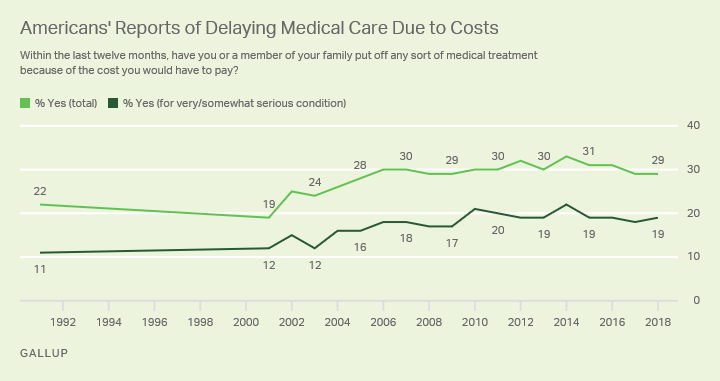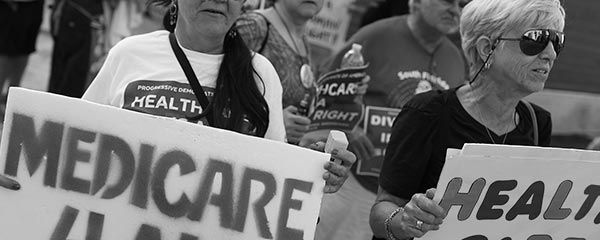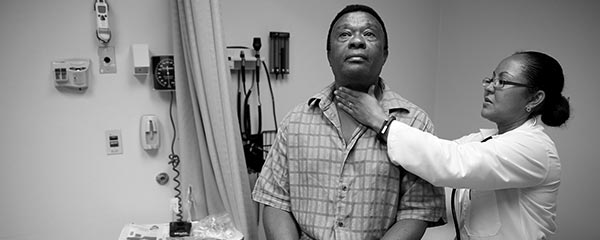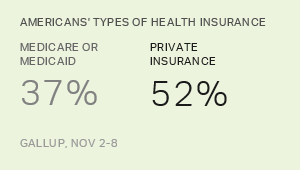Story Highlights
- Since 2005, an average 30% put off care each year due to costs
- Rate averaged 24% earlier in the last decade
- Long-term increase seen most among those with private health insurance
WASHINGTON, D.C. -- Gallup's annual Health and Healthcare poll once again finds roughly three in 10 Americans reporting they held off seeking some kind of medical treatment in the past year due to costs. Today's 29% saying they did this is consistent with the rate seen each year since 2005 but is up from an average 24% in the four years prior to that -- from 2001-2004 -- and from 22% in 1991.

More than half of those who put off medical treatment in the past year -- equivalent to 19% of all U.S. adults -- say the delay involved a very serious or somewhat serious condition or illness. This is consistent with Americans' reports of delaying important treatment over the past decade, whereas the rate was slightly lower from 2001 to 2005. In that earlier period, as well as in 1991, no more than 16% reported delaying treatment for a serious condition.
Another consistent finding over time has been the variation in rates of delayed treatment by the type of health insurance people have. Naturally, the uninsured are the most likely to forgo treatment each year due to costs, with more than half consistently reporting this over the years. Those covered by private insurance are the next-most-likely to delay treatment, while those enrolled in Medicare or Medicaid are the least likely.
Most of the increase seen since 2005 in the overall rate of delayed care has occurred among the privately insured. The percentage of adults in households with private health insurance who say they delayed care in the past year rose from an average 21% from 2001 through 2004 to 30% since 2005. Meanwhile, the rate among those on government insurance programs increased four percentage points, from 18% to 22%, and the rate among those without health insurance was unchanged.
Americans in all three household income groups have been affected by rising health costs, evidenced by similar increases -- of seven to 11 points in each group -- in those not seeking medical care.
| 2001 to 2004 | 2005 to 2018 | |||||||||||||||||||||||||||||||||||||||||||||||||||||||||||||||||||||||||||||||||||||||||||||||||||
|---|---|---|---|---|---|---|---|---|---|---|---|---|---|---|---|---|---|---|---|---|---|---|---|---|---|---|---|---|---|---|---|---|---|---|---|---|---|---|---|---|---|---|---|---|---|---|---|---|---|---|---|---|---|---|---|---|---|---|---|---|---|---|---|---|---|---|---|---|---|---|---|---|---|---|---|---|---|---|---|---|---|---|---|---|---|---|---|---|---|---|---|---|---|---|---|---|---|---|---|---|
| % | % | |||||||||||||||||||||||||||||||||||||||||||||||||||||||||||||||||||||||||||||||||||||||||||||||||||
| U.S. adults | 24 | 31 | ||||||||||||||||||||||||||||||||||||||||||||||||||||||||||||||||||||||||||||||||||||||||||||||||||
| Type of health insurance | ||||||||||||||||||||||||||||||||||||||||||||||||||||||||||||||||||||||||||||||||||||||||||||||||||||
| Private | 21 | 30 | ||||||||||||||||||||||||||||||||||||||||||||||||||||||||||||||||||||||||||||||||||||||||||||||||||
| Medicaid or Medicare | 18 | 22 | ||||||||||||||||||||||||||||||||||||||||||||||||||||||||||||||||||||||||||||||||||||||||||||||||||
| No insurance | 53 | 54 | ||||||||||||||||||||||||||||||||||||||||||||||||||||||||||||||||||||||||||||||||||||||||||||||||||
| Annual household income | ||||||||||||||||||||||||||||||||||||||||||||||||||||||||||||||||||||||||||||||||||||||||||||||||||||
| Less than $30,000 | 31 | 38 | ||||||||||||||||||||||||||||||||||||||||||||||||||||||||||||||||||||||||||||||||||||||||||||||||||
| $30,000 to $74,999 | 23 | 34 | ||||||||||||||||||||||||||||||||||||||||||||||||||||||||||||||||||||||||||||||||||||||||||||||||||
| $75,000 or more | 15 | 22 | ||||||||||||||||||||||||||||||||||||||||||||||||||||||||||||||||||||||||||||||||||||||||||||||||||
| Aggregated data from Gallup's annual Health and Healthcare poll | ||||||||||||||||||||||||||||||||||||||||||||||||||||||||||||||||||||||||||||||||||||||||||||||||||||
| Gallup | ||||||||||||||||||||||||||||||||||||||||||||||||||||||||||||||||||||||||||||||||||||||||||||||||||||
Bottom Line
After paying steep health insurance premiums, or in some cases funding their own medical spending accounts, Americans with health insurance are often still responsible for large deductibles and co-pays that inhibit them from visiting a doctor for every medical symptom. That may be an appropriate check on public demand for healthcare services, helping keep U.S. costs down, but it also prevents some Americans from seeking treatment for more serious medical conditions.
Gallup's measure of delayed treatment provides one metric for tracking the net effect that public policy and financial trends in the consumer healthcare market are having on Americans' access to healthcare. Despite ever-increasing healthcare costs in the U.S., the rates of Americans' putting off care in general, as well as for serious conditions in particular, have been fairly flat over the past 13 years, after rising in the mid-2000s. That may be good news in the face of ever-increasing U.S. healthcare costs and a surge in high-deductible plans. But, this also means that the reduced percentage of uninsured Americans since passage of the Affordable Care Act, as well as provisions in the ACA law meant to contain costs, have not been enough to drive down the overall rate of unmet care.
Learn more about how the Gallup Poll Social Series works.




